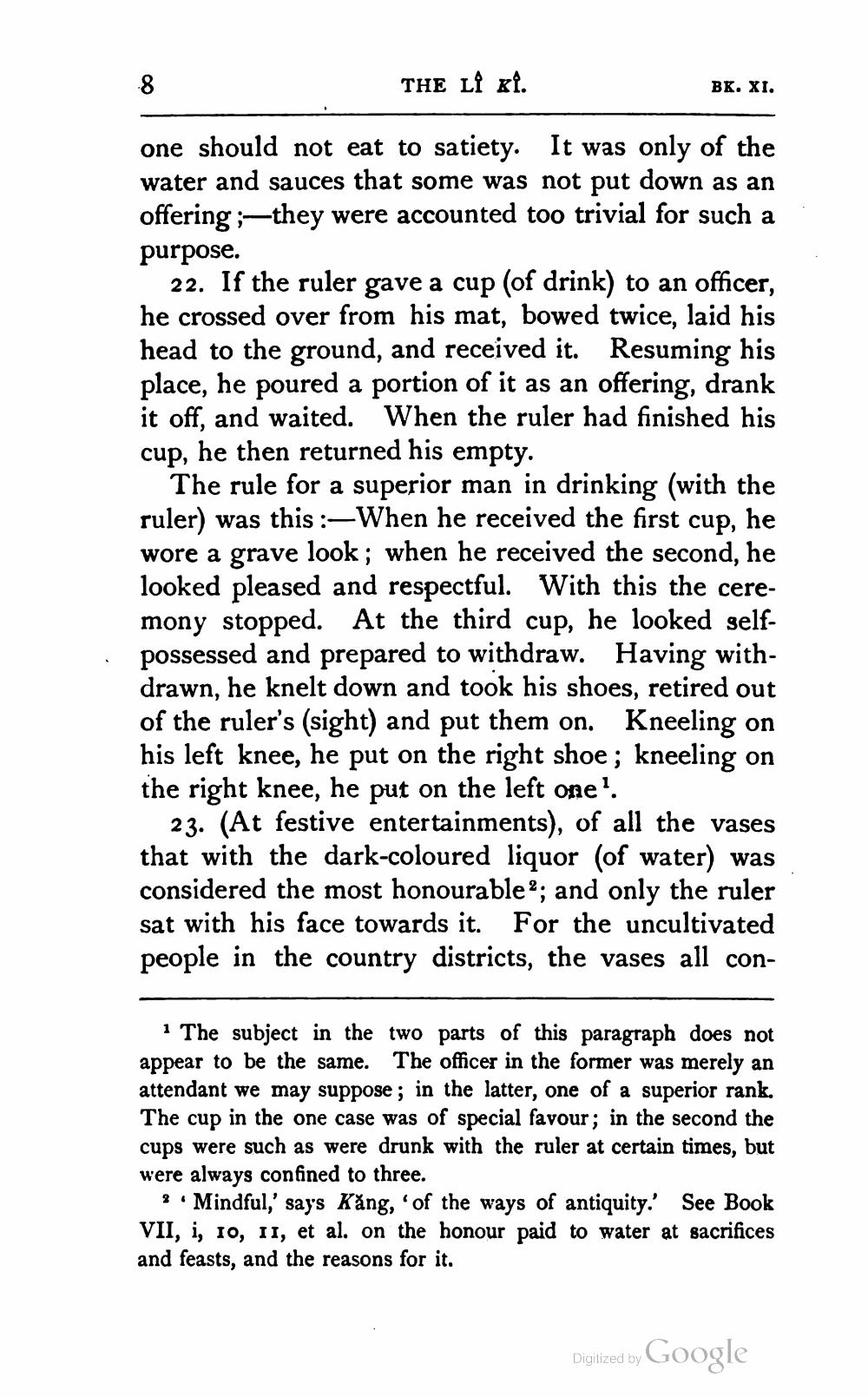________________
THE Lİ Kİ.
one should not eat to satiety. It was only of the water and sauces that some was not put down as an offering;-they were accounted too trivial for such a purpose.
22. If the ruler gave a cup (of drink) to an officer, he crossed over from his mat, bowed twice, laid his head to the ground, and received it. Resuming his place, he poured a portion of it as an offering, drank it off, and waited. When the ruler had finished his cup, he then returned his empty.
The rule for a superior man in drinking (with the ruler) was this:-When he received the first cup, he wore a grave look; when he received the second, he looked pleased and respectful. With this the ceremony stopped. At the third cup, he looked selfpossessed and prepared to withdraw. Having withdrawn, he knelt down and took his shoes, retired out of the ruler's (sight) and put them on. Kneeling on his left knee, he put on the right shoe; kneeling on the right knee, he put on the left one'.
23. (At festive entertainments), of all the vases that with the dark-coloured liquor (of water) was considered the most honourable2; and only the ruler sat with his face towards it. For the uncultivated people in the country districts, the vases all con
BK. XI.
1 The subject in the two parts of this paragraph does not appear to be the same. The officer in the former was merely an attendant we may suppose; in the latter, one of a superior rank. The cup in the one case was of special favour; in the second the cups were such as were drunk with the ruler at certain times, but were always confined to three.
2 Mindful,' says Kăng, 'of the ways of antiquity.' See Book VII, i, 10, 11, et al. on the honour paid to water at sacrifices and feasts, and the reasons for it.
Digitized by
Google




